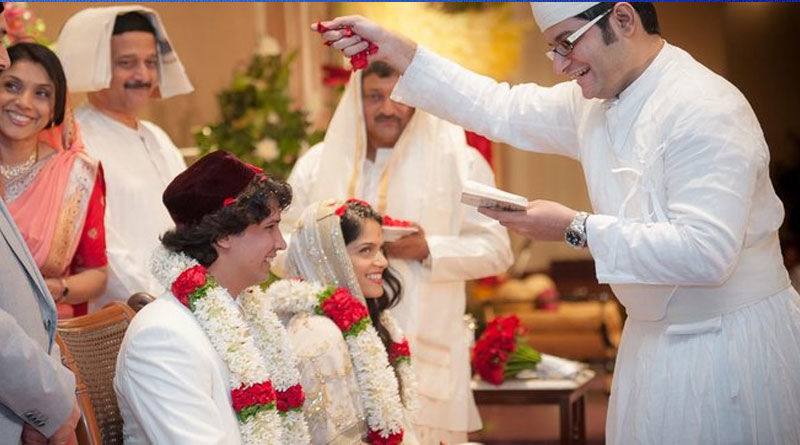The Parsi Marriage and Divorce Act, 1936, which also covers other family matters, governs the Parsi community in India. The Parsis are a Zoroastrian minority religious community mostly found in Mumbai, India. The Act was enacted by the British Indian government in 1936 and amended in 1988. All Parsis are required to register marriages and divorces under the Act. It also lays forth rules on child support, custody, and other pertinent matters. According to the Act, two Parsis may only get married if they are both of sound mind and have attained the age of 21, for men, and 18 for women.
Who is Parsi?
During the Muslim conquest, a large population moved from Persia to the Indian subcontinent; this migratory religious community is known as the Parsi.
- those descended from the initial immigrants.
- a Zoroastrian who has acknowledged his or her mother is a foreigner and father is or was a Parsi.
- Iranian Zoroastrians living in India.
MARRIAGE UNDER THE PARSI MARRIAGE AND DIVORCE ACT, 1936:
VALID MARRIAGE: Sec 3(1) of this act, provides for the requisite/ essentials for the marriage to be valid under this act- (a) the contracting parties are not related to each other in any of the degrees of consanguinity or affinity.
(b) The marriage is performed in accordance with the Parsi tradition by a priest officiating the “Ashirvad” ceremony, which is seen by two Parsi witnesses in addition to the priest.
(c) in the instance of any Parsi who has reached the age of twenty-one if they are a man and eighteen if they are a girl, regardless of whether they have changed their faith or place of residence.
A kid cannot be punished because one of their parents is not their legal parent, according to Parsi law. The offspring of a null marriage are therefore regarded as legitimate offspring. A child born out of a valid marriage has the same legal status as a child born out of a valid marriage. even if the marriage was void because it violated the standards outlined in section 3(1) of the Act. The clause applies both going forward and going back. Contrary to the Hindu and Special Marriage Act, the Parsi Act permits children of invalid marriages to inherit property from both sets of parents.
MARRIAGE NOT INVALID FOR FORMAL IRREGULARITIES
Formal inconsistencies listed in the Act’s section 17:
- In accordance with this act, the marriage certificate is not certified.
- Marriage certificate not submitted to the registrar in the allotted time frame.
- The marriage certificate was erroneous, irregular, or flawed when it was issued.
The Registrar, the Priest, anyone supporting or aiding the Priest, the Registrar’s subordinates, and/or Registrars’ associates are all subject to harsh punishment. However, the imposition of a penalty or procedural flaws do not render the marriages unlawful under Section 17.
Monogamy
Monogamy is professed as per Parsi law. Therefore, the second marriage is prohibited under this act, during the existence of the first marriage.
Penalty for bigamy
The second union is null and void. Section 5 imposes penalties on the parties to a second marriage by holding them liable to the provisions of Indian Penal Code sections 494 and 495. Section 11 of the Act penalises the priest who attempts to formally consummate a second marriage. If a priest disobeys and violates Section 4 of the Act, they may be punished with simple imprisonment for up to six months, a fine of up to $2,000, or both.
REMARRIAGE WHEN UNLAWFUL
Regardless of religious or residential changes, a Parsi cannot marry under this Act while their spouse is still alive, with the exception of a legally recognised divorce from them. Additionally, a marriage that is dissolved or declared null and void after being contracted in violation of this clause is void.
REGISTRATION OF THE MARRIAGE :
Sec 6 – Provide for certificate and registry of marriage
Every marriage entered into under this Act must have the officiating priest immediately after the marriage is solemnised certify it using the form found in Schedule II. The contracting parties, the said priest, and two witnesses must all sign the certificate. The said priest will then forward the certificate to the Registrar of the location where the marriage is solemnised, along with a fee of two rupees that the husband must pay. Upon receiving the certificate and fee, the Registrar is entitled to keep the fee and enters the certificate in a register he will keep for that reason.
Sec 7 – Registrar
to be appointed by the Chief Justice or State Government within the local limits
An appointment of a Registrar is required for the purposes of this Act. The Chief Justice of a High Court appoints the Registrar within the local bounds of the court’s regular original civil jurisdiction; outside of those bounds, the State Government does so. The Chief Justice or the State Government that appointed the Registrar may remove any one of these appointments.
Sec 8 – The marriage register is a public document and should be open for public inspection
The marriage register specified in section 6 must be available for examination at all reasonable times. The Registrar will provide certified extracts from the record upon request and payment of two rupees by the applicant. Each of these registers will serve as proof of the veracity of the statements made within.
Sec 9 – Copy of certificate sent to registrar general of births, deaths, and marriage
A true copy, certified by the Registrar-General of Births, Deaths, and Marriages for the territories administered by the State Government, of all the certificates entered by the Registrar—aside from the one appointed by the Chief Justice of the High Court of Judicature at Bombay—in the form prescribed by the State Government from time to time, must be sent to the Registrar-General of Births, Deaths, and Marriages at intervals determined by the State Government.
Sec 13 – Penalty for committing to subscribe and attest certificate fine of not exceeding 100 rupees
If found guilty of any such offence, the other person mandated by section 6 to sign or attest to the aforementioned certificate will be fined up to one hundred rupees for each willful omission or neglect.

GROUNDS FOR DISSOLUTION OF MARRIAGE:
UNDER Parsi Marriage and Divorce Act
The Parsi Marriage and Divorce Act, 1936, which indicates that it governs and clarifies the laws governing marriage and divorce for the Parsi and Irani communities in India, is the law that governs divorce under Parsi law. All of India is covered by this act, except for Jammu and Kashmir. The Parsi Marriage and Divorce (Amendment) Act, 1988, which was primarily created to amend the antiquated, more discriminating regulations, was passed and implemented this act.
Matrimonial suits
According to the Parsi Divorce Act, a spouse may end a marriage in one of three ways: Nullity cases: A marriage may be deemed null or void unless the consummation is improbable due to natural causes.
Any married individual may file for divorce for any one or more of the reasons listed below:
- that the defendant’s deliberate failure to consummate the marriage prevented it from being done within a year of its solemnization.
- that the defendant was mentally ill when they got married and continued to be so until the lawsuit date.
- that the plaintiff was not the person who caused the defendant’s pregnancy at the time of the marriage.
- that the accused party has engaged in fornication, adultery, bigamy, rape, or an unnatural offence.
- that the plaintiff has willingly suffered great harm from the defendant ever since their marriage.
- if the offender is serving a seven-year or longer jail sentence for a crime as defined by the Indian Penal Code.
- that the plaintiff has been abandoned by the defendant for a minimum of two years.
- considers bringing a divorce lawsuit based on the fact that the defendant is the subject of an order.
- that the accused is no longer a Parsi
Reasons for marriage dissolution:
after a husband and wife have been apart for a duration of seven years. Unless the court directs otherwise, the complainant will be the co-defendant in any proceedings pertaining to adultery divorce. In all other proceedings pertaining to the adultery that is purported to have occurred, the court will order the adulterer to reimburse all or a portion of the costs associated with the proceedings. If a husband has stopped living with his wife, deserted her, or stopped cohabiting without a good reason, the person who was deserted or with whom cohabitation had stopped may file a lawsuit to recoup their conjugal rights and court costs if they are satisfied that the claim in the plea is true.
CUSTODY OF THE CHILDREN
In any lawsuit brought under this Act, the court may, upon application by petition for this purpose, make, revoke, suspend, or vary at any time all orders and provisions with respect to the custody, maintenance, and education of such children as might have been made by such final decree or by interim orders in the event that the suit for obtaining such decree were still pending. The court may also make provisions in the final decree regarding the custody, education, and maintenance of children under the age of eighteen, the marriage of whose parents is the subject of the lawsuit.
In every case under the current Act, the Court may, upon request, apply for the final order. The Court may, from time to time, pass these interim orders in respect of the custody, maintenance, and training of children under the age of six (till 18 years) in a definitive judgement which it finds fair and proper to marry the parent to which the case relates. If the Tribunal is informed that a wife has a right to any possession or reversal of property, the Court may, for the benefit of any case regarding which a decree of divorce has been issued, order a settlement of that right from any portion of that property, not to exceed half of it. divorce or judicial separation for the adultery of a wife is given.
As a result, although Parsi law is generally thorough and well-structured, numerous adjustments and revisions are still needed to bring it up to pace with other personal laws. Parsi law already has the ability to effect change; it just needs some direction to become recognised, compete, and take a stand.
Adv. Khanak Sharma


Pioneers in the realm of global pharmacy.
how can i get generic lisinopril without dr prescription
A reliable pharmacy in times of emergencies.
They simplify global healthcare.
buying cheap cytotec without dr prescription
Their health seminars are always enlightening.
I’ve sourced rare medications thanks to their global network.
cost of lisinopril without a prescription
The best place for quality health products.